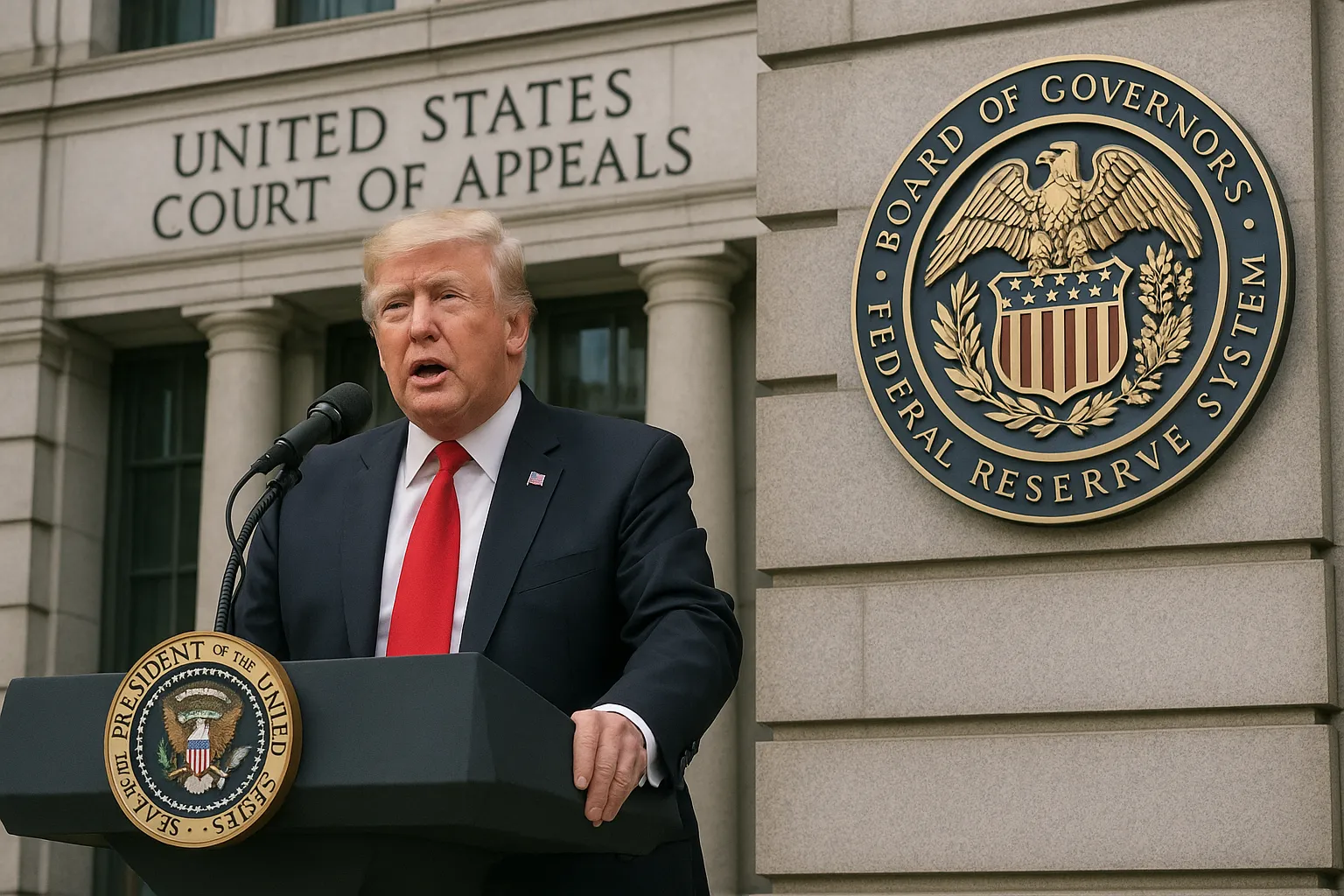Trump Urges Appeals Court to Greenlight Firing of Fed Governor Lisa Cook

Lead: President Donald Trump on Sunday petitioned the U.S. Court of Appeals for the D.C. Circuit to lift a lower court injunction blocking his effort to remove Federal Reserve Governor Lisa Cook before this week’s policy meeting.
Nut Graf: In an unprecedented bid to shape the Fed’s leadership ahead of its interest-rate decision, the White House argued that Cook’s alleged mortgage-fraud claims justify “cause” for dismissal and that judicial review of presidential removal power is improper.
Appeal Seeks Emergency Relief
Trump’s attorneys filed their response just before the 3 p.m. ET deadline, asking the three-judge panel to stay Judge Jia Cobb’s September 9 injunction that prevents Cook’s ouster while her lawsuit challenging the removal proceeds.
They argued that Cook’s alleged misrepresentations on two home-purchase documents-one in Atlanta, one in Michigan-undermine confidence in her ability to oversee U.S. monetary policy with integrity.
Lower Court Ruling and Legal Stakes
On September 9, U.S. District Judge Jia Cobb barred the administration from firing Cook on grounds that the allegations predate her 2022 confirmation and are unrelated to her job performance, finding the removal likely unlawful.
No president has ever dismissed a Fed governor; the statutes permit removal only “for cause” but do not define that term or preclude courts from reviewing the decision.
Fed Meeting Looms
The appeals panel could rule as early as Monday, just before the Fed’s two-day meeting begins Tuesday, where officials are widely expected to cut the federal funds rate by 25 basis points amid mounting calls from Trump for deeper cuts.
Cook’s lawyers warned that barring her from attending the vote could roil financial markets and undermine the Fed’s political independence.
Uncharted Constitutional Territory
The case raises fundamental questions about the separation of powers, the scope of presidential removal authority, and the judiciary’s role in policing executive-branch personnel decisions. A decision from the D.C. Circuit could ultimately be appealed to the Supreme Court, potentially redefining the balance between the White House and the Federal Reserve.
Categories
Autos and vehicles Beauty and fashion Business and finance Climate Entertainment Food and drink Games Health Hobbies and leisure Jobs and education Law and government Other Politics Science Shopping Sports Technology Travel and transportationRecent Posts
Tags
Archives
08/19/2025 (3) 08/20/2025 (40) 08/21/2025 (27) 08/22/2025 (22) 08/23/2025 (4) 08/24/2025 (21) 08/25/2025 (30) 08/26/2025 (24) 08/27/2025 (29) 08/28/2025 (16) 08/29/2025 (9) 08/30/2025 (13) 08/31/2025 (17) 09/01/2025 (167) 09/02/2025 (124) 09/03/2025 (149) 09/04/2025 (112) 09/05/2025 (72) 09/06/2025 (169) 09/07/2025 (162) 09/08/2025 (150) 09/09/2025 (176) 09/10/2025 (194) 09/11/2025 (194) 09/12/2025 (186) 09/13/2025 (207) 09/14/2025 (159) 09/15/2025 (175) 09/16/2025 (198) 09/17/2025 (196) 09/18/2025 (196) 09/19/2025 (207) 09/20/2025 (129) 09/21/2025 (4)